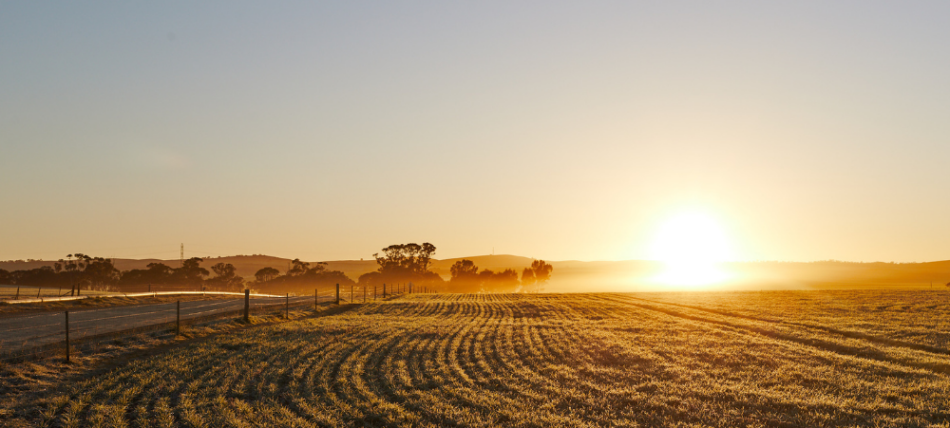Australia’s bushfires – Caring for your patients.

Residents of South Australia, in fact all of Australia, are experiencing a stressful and frightening time with the bushfire crisis. News services daily deliver the expanse of the fires and devastation that is occurring across the nation into our own homes. Many of our communities are experiencing this devastation first hand. The loss and change that is being experienced across Australia due to the ongoing bushfires is challenging those directly affected and also those who have witnessed this. There is much goodwill and a desire to care for those affected.
Below are some strategies to assist you in caring for your patients affected by the bushfires and to care for yourself.
Patient experiences
People vary in the way they respond to this crisis, but over time, most people will recover and rebuild their lives. During what can be a prolonged recovery process, we need to care for others and ourselves. Some of the common reactions to disasters include:
- fear, sadness or anger
- feeling overwhelmed, numb, detached or withdrawn
- difficulty focusing or concentrating
- tearfulness
- sleep problems
- constant questioning
Sharing stories, caring for each other, checking in on others are simple ways that as a community we can support and care for those affected by the fires. We may also choose to donate to one of the registered charities collecting funds for the fire fighters or those affected by the fires. Finding ways to help others can often trigger healing and recovery for ourselves.
For the health care worker who is meeting with or is treating a person affected by the traumas and loss, it can be a daunting time. The Royal Australian College of General Practitioners (RACGP) have added information to their website for GPs impacted by bushfires.
Below is an excerpt from the RACGP on managing the first consultation with a person who has been impacted by the bushfires:
GPs should ensure their patients impacted by bushfires are safe and have the support of family members, friends and the community.
During the first consultation with a patient impacted by fire, GPs are advised to:
1. Listen, comfort and quietly accept information
- Offer help and comfort.
- Be quietly responsive.
- Touch, if appropriate.
- Some people may be helped by talking, for others talking may make it more difficult or, it may not be the right time. Let the individual guide you.
- Identify support systems of family, friends and local community groups.
- Remember the special things in families that may be important, e.g. pets.
2. Ensure survival, safety and security
A stunned mental state can leave people relatively unaware of their own safety and vulnerability.
A brief medical assessment allows:
- Assessment of physical injuries
- A review of changes to pre-existing physical and mental health conditions
- Time for contact and talk
- Gives reassurance and shows interest. Provision of a safe place to stay is important. If very concerned about someone’s mental health, talk to a mental health professional.
3. Orient towards goals
Trauma and grief can leave a sense of chaos and fear. Activities that can help patients regain a sense of structure include:
- Basic routines (meals etc.)
- An early follow-up appointment at one month and again if concerns at three months
- Being in the company of others until the acute distress/denial subsides (hours to days)
- Show patients things they can do themselves towards recovery
- Practical tasks and everyday routine are helpful.
The main issues for patients in your initial consultation are fear, grief and loss, and dislocation.
It is common to experience grief and trauma after a disaster.
Feeling dislocated from one’s home and environment, due to the loss of a house or neighbourhood, are factors that can lead to ongoing distress.
Common themes that patients might express are:
- Difficulty falling and remaining asleep
- Anxiety
- Uncertainty about the future and what they can do to feel safe, supported and happy again
- Disruption to normal routines and patterns of life adding to uncertainty
- Irritability, anger and frustration can be common
There are ways to help people re-engage with the practical aspects of their lives, including:
- Linking to others such as family, friends and neighbours. This could be done directly, through social media, or any other channels that work best for them.
- Getting the best sources of information, including local radio and newspapers, media and call centres.
- Helping people call upon their own personal strengths that they have used in the past or in difficult situations (everyone has these).
This is a very powerful part of getting better.
Patient handouts
It may also be useful to have some specific handouts available for your patients. Below are some of the Australian handouts available free of charge for you to download:
- Headspace – After a natural disaster
Australian Centre for Post-traumatic Mental Health, Beyond Blue, Australian Centre for Grief and Bereavement and Australian Red Cross – Looking after yourself after a disaster - Beyond Blue – Bushfires and mental health
- Australian National University – Bushfire resources